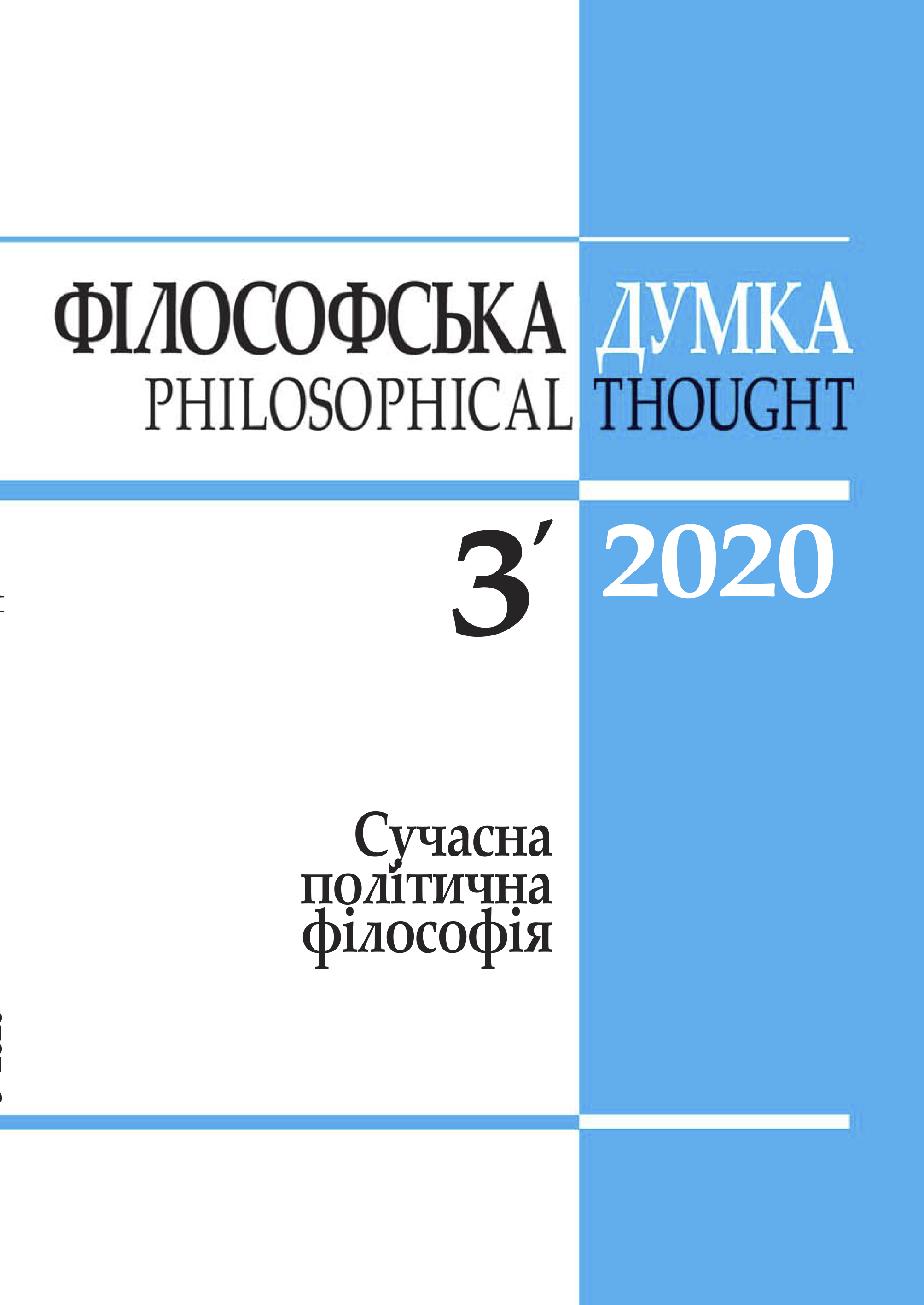The Anglo-American political philosophy in the 20th century
Revival of political philosophy in the 20th century
DOI:
https://doi.org/10.15407/fd2020.03.029Keywords:
political philosophy, John Rawls, theory of justice, liberalism, communitarianismAbstract
The revival of Anglo-American political philosophy began in the 1970s with the publication of A Theory of Justice by John Rawls and Wittgenstein and Justice by Hanna Pitkin. This revival was facilitated by the turbulent political processes occurring after the Second World War that required philosophical understanding, but the long-dominant utilitarian approach could not fully meet this task.
Traditionally, the main issue in political philosophy has been the question of power, spe- cifically its political organization and legitimacy. Rawls demonstrated that the political organiza- tion of power is derived from how we understand ethical norms and what norms (rules) we follow in social interaction. Thus, the main question of political philosophy is not power but justice. He also demonstrated that political freedom is closely linked to equality. Rawls’s theory had a deci- sive influence on the political philosophy of the twentieth century, the development of which was largely based on criticism or reception of his ideas.
Today, we are witnessing the beginning of a break with tradition, which was expressed by Rawls and suggested that the political is based on the possibility of consensus and ethical agree- ment. The current developments in political philosophy are closely connected with the rethink- ing of Rawls’s legacy, and we see this in the development of non-ideal political theories.
References
Brogan, W., Risser, J. (Eds.) (2000). American Continental Philosophy: A Reader. Bloomington, Indianapolis: Indiana University Press.
Forrester, K. (2019). In the Shadow of Justice: Postwar Liberalism and the Remaking of Political Philosophy. Princeton, Oxford: Princeton University Press.
https://doi.org/10.2307/j.ctvfb6zcv
Glendinning, S. (1999). What is Continental Philosophy? In: S. Glendinning (Ed.), The Edinburgh Encyclopedia of Continental Philosophy (pp. 3-21). Edinburg: Edinburg University Press.
Klosko, G. (2011). Contemporary Anglo-American Political Philosophy. In: G. Klosko (Ed.), The Oxford Handbook of the History of Political Philosophy (pp. 456-479). New York: Oxford University Press.
https://doi.org/10.1093/oxfordhb/9780199238804.003.0026
MacCabe, D. (1996). New Journals in Political Philosophy and Related Fields. Ethics, 106, 800-816.
https://doi.org/10.1086/233673
Miller, D. (2003). Political Philosophy: A Very Shot Introduction. Oxford, New York: Oxford University Press.
https://doi.org/10.1093/actrade/9780192803955.001.0001
Nozick, R. (1999). Anarchy, State, and Utopia. Oxford, Cambridge: Blackwell.
Pitkin, H. (1972). Wittgenstein and Justice. On the Significance of Ludwig Wittgenstein for Social and Political Thought. Berkeley, Los Angeles, London: University of California Press.
Pocock, J.G.A. (2006). Theory in History: Problems of Context and Narrative. In: J.S. Dryzek, B. Honig, A. Phillips (Eds.), The Oxford Handbook of Political Theory (pp. 163-175). Oxford, New York: Oxford University Press.
Rawls, J. (2003). A Theory of Justice. Cambridge: The Belknap Press of Harvard University Press. Strauss, L., Cropsey, J. (1987). History of Political Philosophy / 3rd ed. Chicago, London: The University of Chicago Press.
Downloads
-
PDF (Українська)
Downloads: 506
Published
How to Cite
Issue
Section
License
Authors who publish with this journal agree to the following terms:
- Authors retain copyright and grant the journal right of first publication.
- Authors are able to enter into separate, additional contractual arrangements for the non-exclusive distribution of the journal's published version of the work (e.g., post it to an institutional repository or publish it in a book), with an acknowledgement of its initial publication in this journal.
- Authors are permitted and encouraged to post their work online (e.g., in institutional repositories or on their website) prior to and during the submission process, as it can lead to productive exchanges, as well as earlier and greater citation of published work (See The Effect of Open Access).


